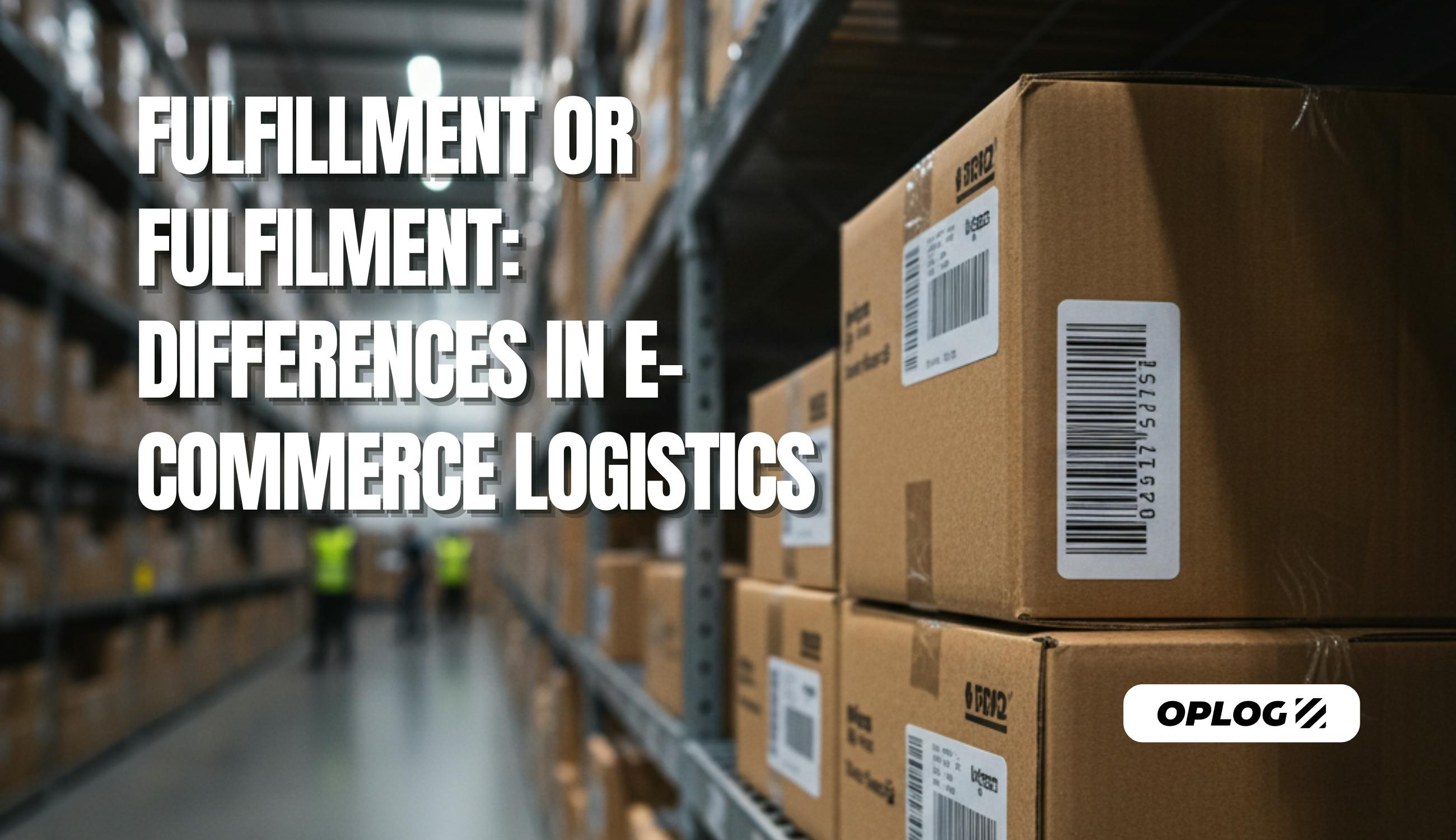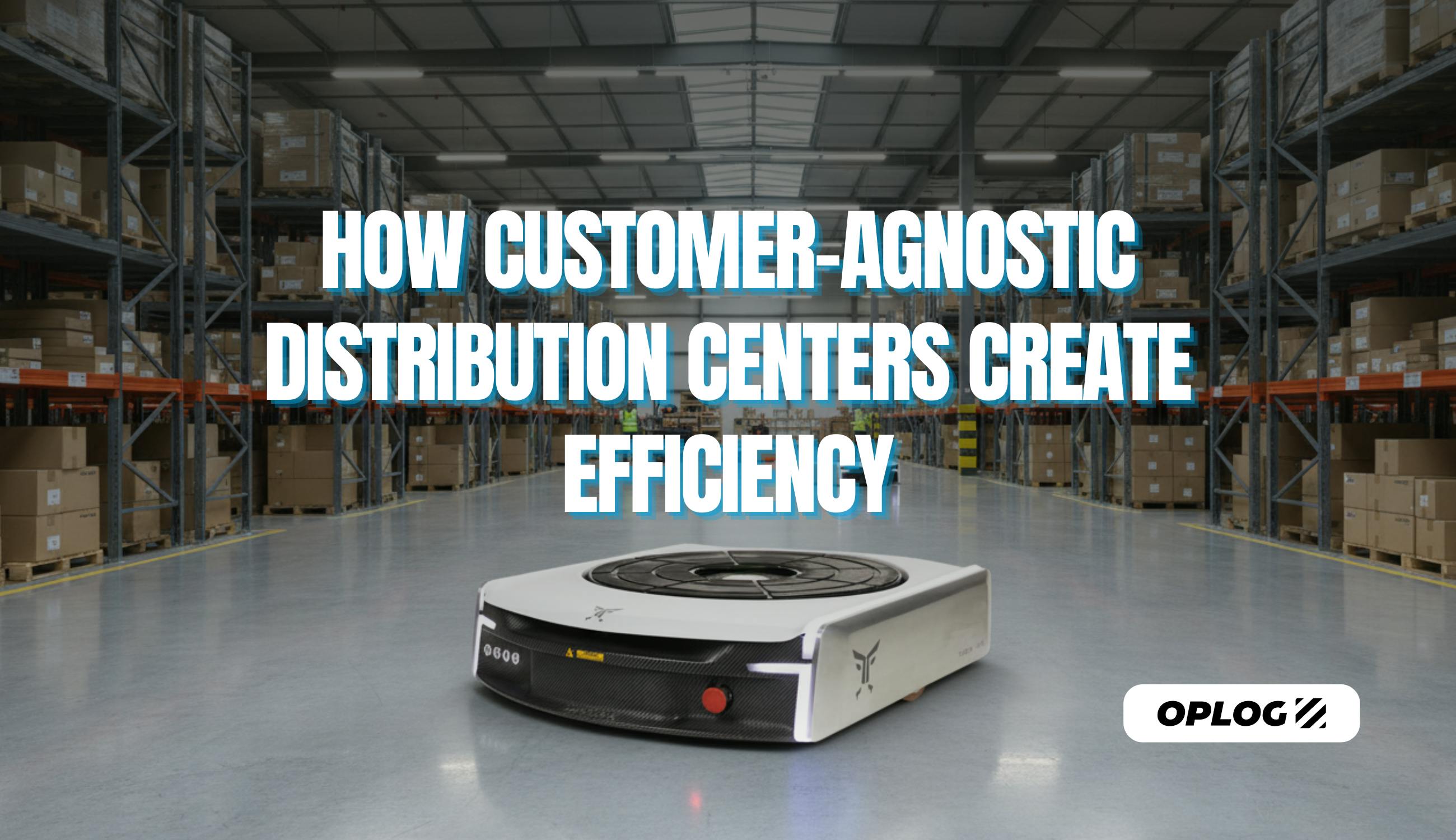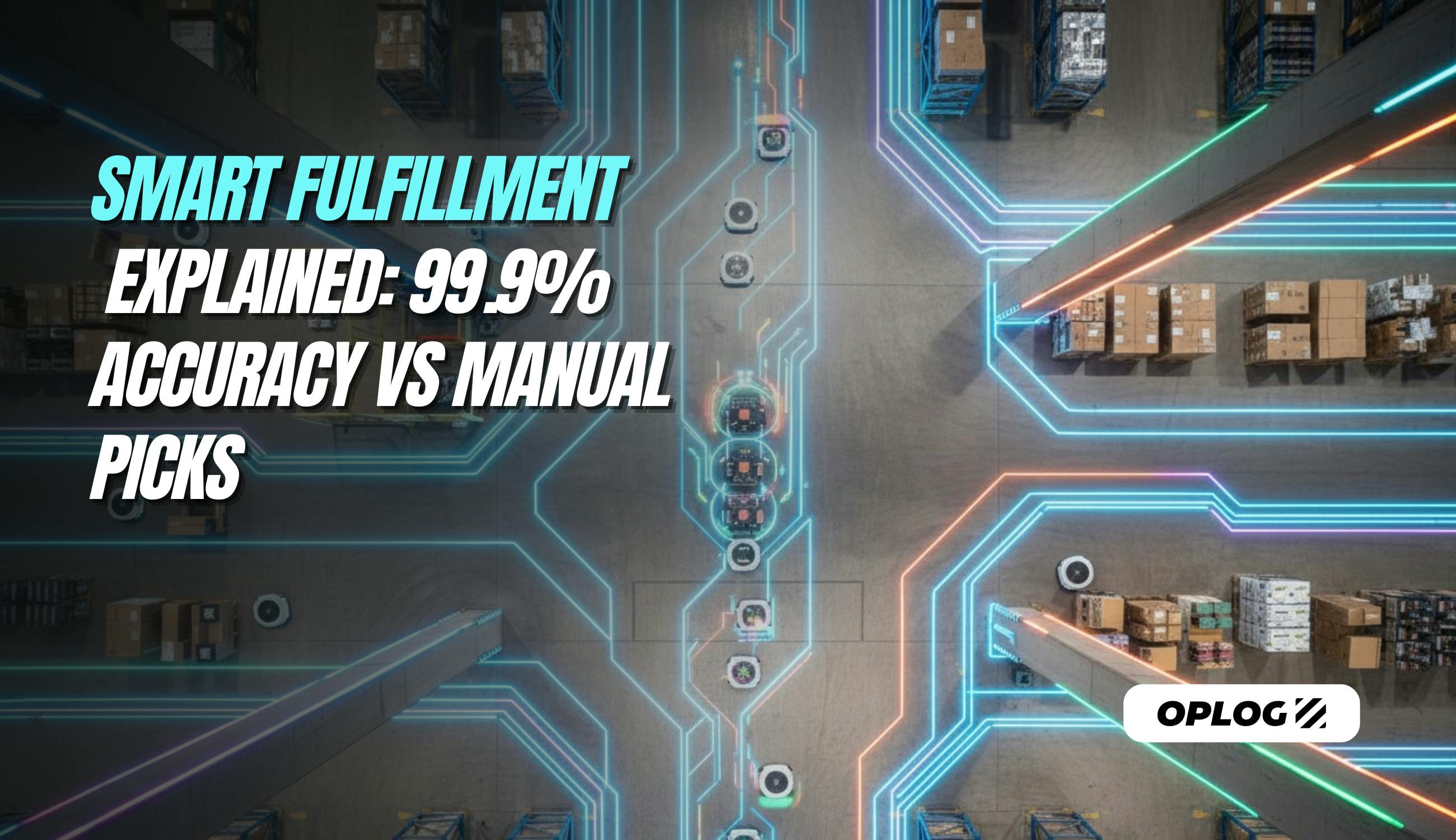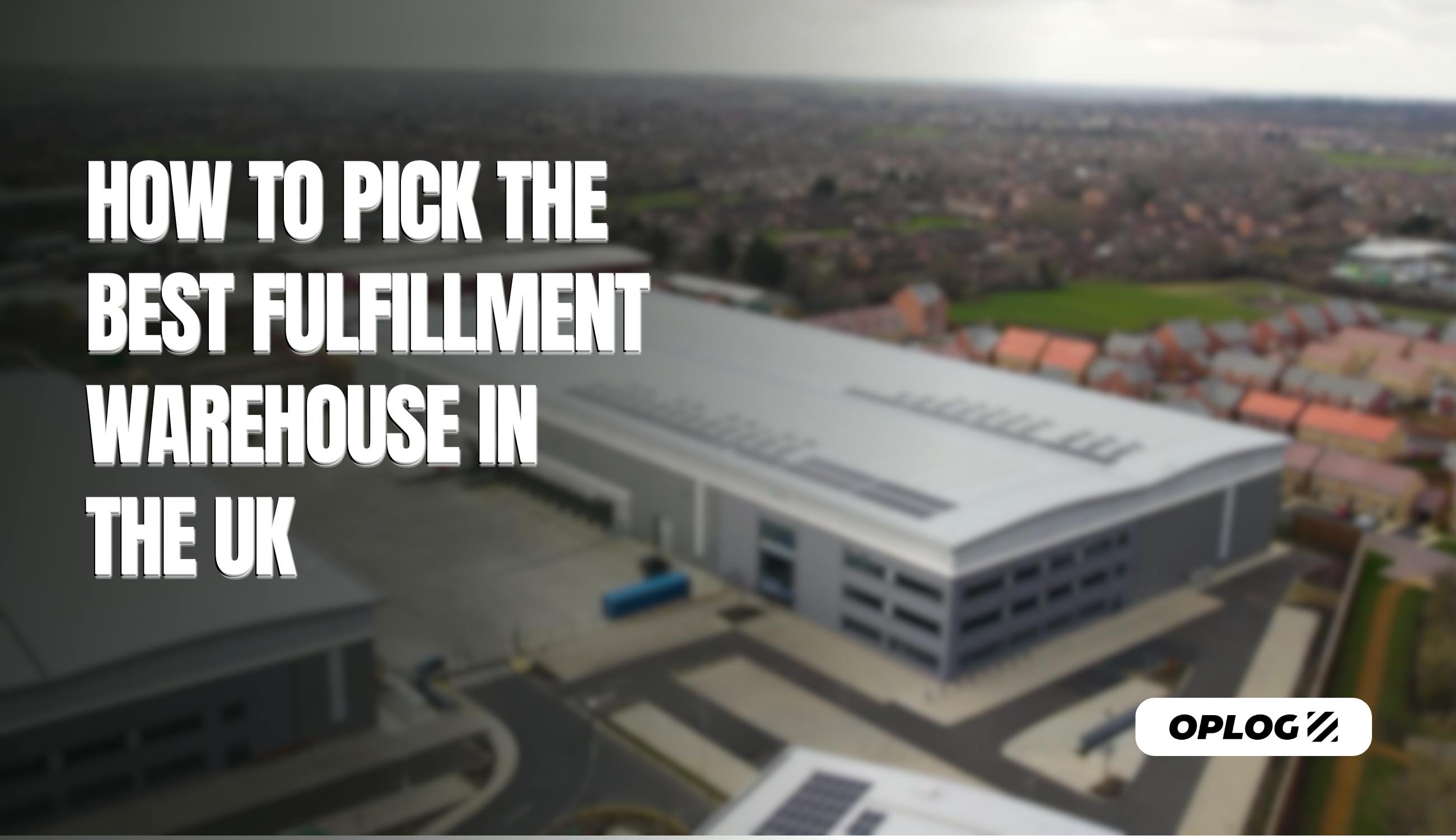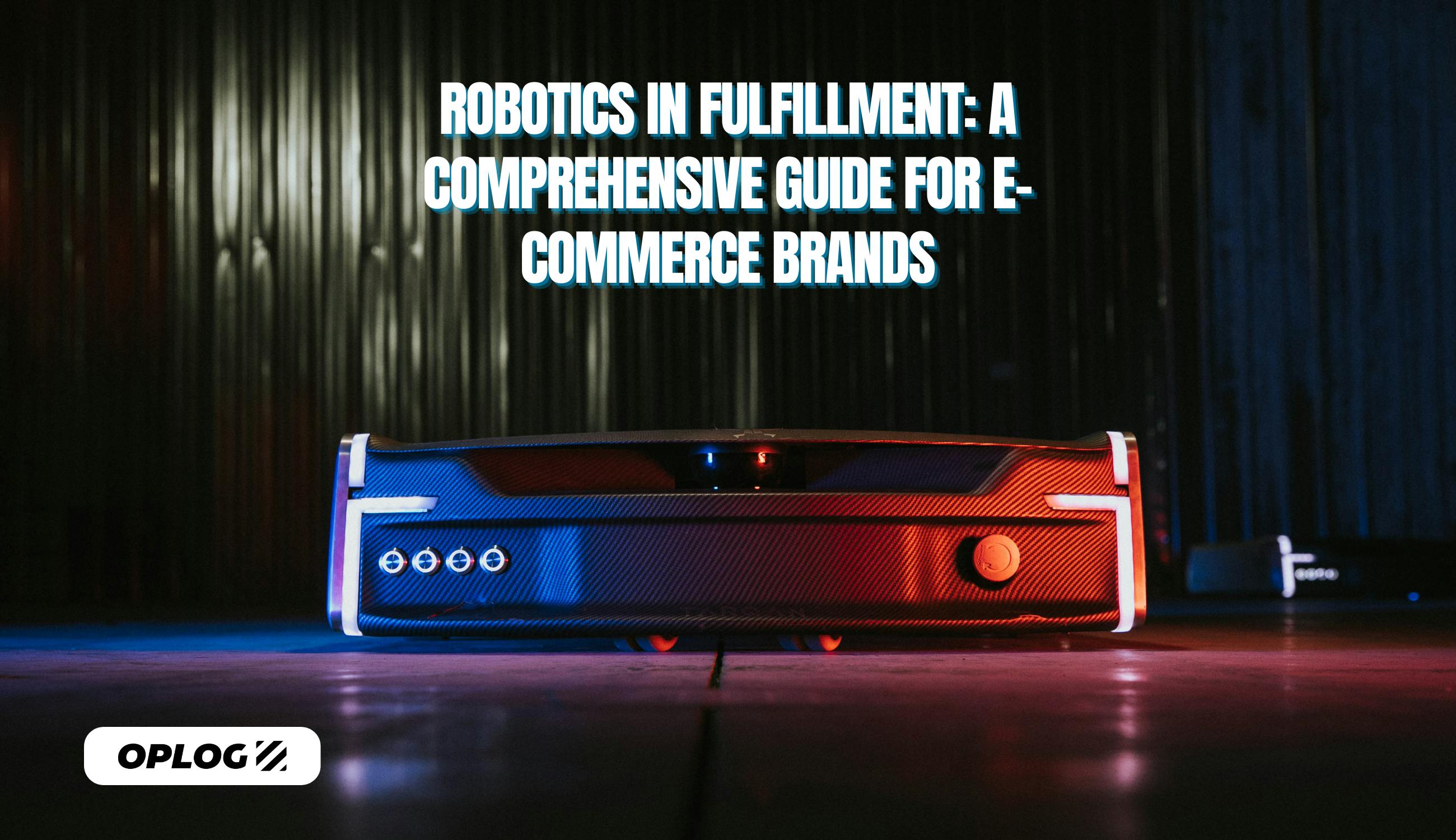Fulfillment or Fulfilment: Spelling Differences in E-commerce Logistics
If you've ever wondered whether to write "fulfillment center" or "fulfilment centre", you're not alone. Every month, thousands of e-commerce professionals, business owners, and logistics managers search for clarity on this spelling confusion. The debate between "fulfillment" and "fulfilment" isn't just about grammar – it's about understanding your market, optimizing your communications, and ensuring your global business speaks the right language to the right audience. This comprehensive guide will settle the debate once and for all.
The Regional Divide: American vs British English
The difference between "fulfillment" and "fulfilment" is straightforward: it's a classic case of American versus British English spelling conventions. But understanding when and where to use each version requires a deeper look at the linguistic divide that shapes international business communication.
American English: Fulfillment
In the United States, Canada, and other regions influenced by American English, "fulfillment" with double 'l' but single 'l' before the suffix is the standard spelling. This follows the American English pattern of simplifying doubled consonants before suffixes. You'll see this in major American companies: Amazon operates "Fulfillment Centers" across the globe, Walmart uses "fulfillment services," and every American e-commerce platform from Shopify to BigCommerce refers to "fulfillment" in their documentation.
The American spelling extends to related terms as well: fulfilling, fulfilled, fulfiller. This consistency stems from Noah Webster's 19th-century efforts to simplify and standardize American English, removing what he considered unnecessary letters from British spellings. Just as Americans write "enrollment" instead of "enrolment" and "installment" instead of "instalment," they've adopted "fulfillment" as the standard.
British English: Fulfilment
Across the Atlantic, in the United Kingdom, Australia, New Zealand, India, and most Commonwealth countries, "fulfilment" maintains the traditional British spelling pattern. British English typically preserves the double 'l' when adding suffixes, resulting in "fulfilment" rather than "fulfillment." This spelling appears in all UK-based logistics companies' materials, from Royal Mail to local fulfilment centres in Manchester or London.
The British spelling convention reflects a broader pattern in the language. Where Americans have simplified, British English has maintained historical spellings: "colour" vs "color," "centre" vs "center," and yes, "fulfilment" vs "fulfillment." For British readers, seeing "fulfillment" can appear as foreign as seeing "color" in a British newspaper.
The Historical Context Behind the Split
This spelling divergence isn't arbitrary – it's rooted in the historical development of English on both sides of the Atlantic. When Noah Webster published his American Dictionary of the English Language in 1828, he deliberately reformed many British spellings to create a distinct American identity and to make the language more logical and phonetic. He argued that many British spellings were unnecessarily complex, influenced by French and Latin roots that no longer reflected pronunciation.
The word "fulfil" itself comes from the Old English "fullfyllan," meaning "to fill up" or "to complete." When adding the suffix "-ment" to create a noun, British English maintained the traditional approach of keeping the double 'l', while American English adopted Webster's simplified version. Interestingly, both varieties spell the base verb differently too: Americans write "fulfill" (with double 'l' at the end), while Brits write "fulfil" (with single 'l').
Which Spelling Should Your Business Use?
The choice between "fulfillment" and "fulfilment" isn't just academic – it has real implications for your business communications, marketing effectiveness, and customer perception. Making the right choice depends on several factors that every e-commerce business must consider.
Consider Your Primary Market
Your geographical focus should be the primary determinant of your spelling choice. If your business primarily serves the United States market, using "fulfillment" is non-negotiable. American customers expect American spelling, and using "fulfilment" can make your business appear foreign or unfamiliar, potentially impacting trust and conversion rates. Similarly, if you're targeting the UK market, "fulfilment" demonstrates cultural awareness and professionalism.
But what if you're serving both markets? This is where strategy becomes crucial. Many global businesses choose to maintain regional versions of their content, using "fulfillment" for American audiences and "fulfilment" for British and Commonwealth markets. This approach requires more effort but shows respect for local preferences and can improve engagement rates.
Website and Marketing Implications
Your spelling choice affects every piece of content you create. From your homepage to your FAQ section, from email campaigns to social media posts, consistency is key. Mixed spelling within the same piece of content or website section appears unprofessional and can confuse both readers and search engines.
Consider creating a style guide that clearly specifies which spelling to use in different contexts. For instance, if you operate globally but are headquartered in the US, you might use "fulfillment" in all corporate communications but adapt to local spellings in regional marketing materials. This is exactly the approach OPLOG takes with operations across Turkey, the UK, and Germany – adapting our language to resonate with local markets while maintaining consistency within each region.
Business Documentation and Legal Considerations
Legal documents, contracts, and official business communications require particular attention to spelling consistency. While courts and legal professionals understand both spellings, maintaining consistency within documents is crucial for clarity and professionalism. If you're drafting a contract with a British company, using "fulfilment" shows attention to detail and cultural awareness. Conversely, American partners expect to see "fulfillment" in proposals and agreements.
The Modern Reality: Understanding Fulfillment/Fulfilment in E-commerce

Regardless of how you spell it, fulfillment/fulfilment represents the same critical e-commerce function: the process of receiving, processing, packing, and shipping customer orders. In today's global marketplace, the ability to provide efficient fulfillment/fulfilment services can make or break an e-commerce business.
Modern fulfillment/fulfilment has evolved far beyond simple warehousing. Today's fulfillment/fulfilment centers, whether spelled with one 'l' or two, incorporate advanced technologies like AI-powered robotics, real-time inventory management, and sophisticated order routing algorithms. At OPLOG, our TARQAN robotics system operates seamlessly whether we're discussing "fulfillment services" with American clients or "fulfilment solutions" with our UK partners.
The fulfillment/fulfilment process typically involves several key stages: inventory receiving and storage, order processing, picking and packing, shipping, and returns management. Each stage has become increasingly sophisticated, with automation and robotics playing growing roles. Modern fulfillment/fulfilment centers use AI to predict demand, optimize inventory placement, and even determine the most efficient packing methods for each order.
How to Choose the Best Fulfillment/Fulfilment Company
Whether you spell it "fulfillment" or "fulfilment," choosing the right logistics partner is crucial for your e-commerce success. The spelling might vary by region, but the criteria for excellence remain universal. Here's what to look for when selecting a fulfillment/fulfilment provider:
Technology and Integration Capabilities
The best fulfillment/fulfilment companies offer seamless integration with your existing e-commerce platforms, whether that's Shopify, WooCommerce, Magento, or marketplace channels like Amazon and eBay. Look for providers with robust APIs, real-time inventory synchronization, and comprehensive dashboard visibility. Modern fulfilment/fulfillment centers should provide you with instant access to inventory levels, order status, and shipping tracking – regardless of whether they call it a "fulfillment dashboard" or "fulfilment panel."
Advanced providers like OPLOG go beyond basic integration, offering AI-powered robotics that ensure 99.9% accuracy in order fulfillment/fulfilment. Our TARQAN system represents the next generation of fulfillment/fulfilment technology, delivering consistent excellence whether serving American "fulfillment" needs or British "fulfilment" requirements.
Pricing Structure and Transparency
Beware of fulfillment/fulfilment companies that hide fees in complex pricing structures. The best providers offer transparent, pay-as-you-go models that align costs with your actual business activity. Whether they advertise "fulfillment services" or "fulfilment solutions," the pricing should be clear and predictable. Look for providers that don't require long-term contracts or impose hefty minimum monthly fees – flexibility is essential for growing e-commerce businesses.
Consider the total cost of fulfillment/fulfilment, including receiving fees, storage charges, pick and pack costs, and shipping rates. Some providers might offer low storage rates but compensate with high handling fees. Others might provide "free" fulfillment/fulfilment software but mark up shipping costs significantly.
Geographic Coverage and Cross-Border Capabilities

In today's global marketplace, your fulfillment/fulfilment partner should support your international ambitions. If you're selling to both American and British markets, you need a provider that understands both "fulfillment" and "fulfilment" – literally and operationally. Look for companies with strategic warehouse locations that can serve your target markets efficiently.
For businesses expanding internationally, choosing a fulfillment/fulfilment partner with cross-border expertise is crucial. They should understand customs regulations, VAT requirements, and international shipping complexities. This is particularly important post-Brexit, where shipping between the UK and EU has become more complex. A provider with facilities in multiple regions – like OPLOG's presence in Turkey, UK, and Germany – can help you navigate these challenges while maintaining fast delivery times.
Scalability and Flexibility
Your fulfillment/fulfilment needs will change as your business grows. The right partner should scale with you, handling everything from 100 orders per month to 10,000 without missing a beat. This means having the infrastructure, technology, and processes to accommodate growth without requiring you to switch providers or renegotiate contracts.
Look for fulfillment/fulfilment companies that can handle seasonal fluctuations without penalties. Whether it's Black Friday in America (requiring rapid "fulfillment") or Boxing Day sales in the UK (demanding efficient "fulfilment"), your provider should manage peak periods seamlessly without surge pricing or service degradation.
Industry Expertise and Specialization
Different products require different fulfillment/fulfilment approaches. Fashion items need careful handling and potentially special packaging. Electronics require secure storage and handling protocols. Perishable goods demand temperature control and quick turnaround. The best fulfillment/fulfilment providers have experience in your specific industry and understand your unique requirements.
Ask potential fulfillment/fulfilment partners about their experience with businesses like yours. Can they handle your product sizes and weights? Do they offer custom packaging options? How do they manage returns – a critical aspect of fashion fulfillment/fulfilment? A provider with relevant expertise will anticipate challenges and offer solutions before problems arise.
Conclusion: The Word May Differ, the Right Partner Doesn’t: OPLOG
The fulfillment vs fulfilment debate ultimately comes down to knowing your audience and respecting regional preferences. Both spellings are correct – they're simply different conventions for different markets. What matters more than the spelling you choose is the quality of service you provide.
In an increasingly global marketplace, the most successful businesses are those that can adapt to local preferences while maintaining operational excellence. Whether you call it a fulfillment center or a fulfilment centre, whether you offer fulfillment services or fulfilment solutions, the goal remains the same: delivering products to customers quickly, accurately, and efficiently.
At OPLOG, we've built our business on the principle that technology transcends linguistic differences. Our TARQAN robotics system provides the same 99.9% accuracy whether it's operating in a "fulfillment center" in Texas or a "fulfilment centre" in London. We understand that success in global e-commerce means speaking your customers' language – literally and figuratively.
The future of e-commerce logistics isn't about choosing between fulfillment or fulfilment – it's about providing exceptional service that makes the spelling irrelevant. Focus on building robust operations, investing in the right technology, and understanding your customers' needs. The spelling will sort itself out based on where you're serving, but operational excellence is universal.
